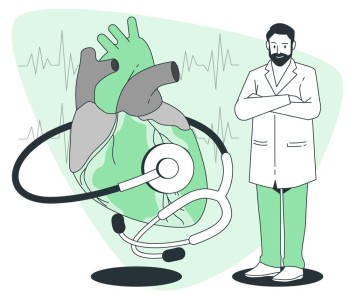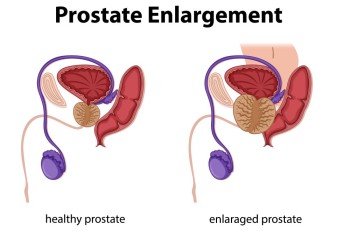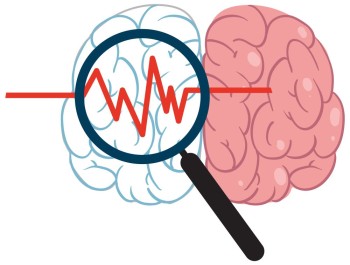
When it comes to exploring the intricacies of the human body, medical imaging has proven to be an invaluable tool. One such diagnostic method that has revolutionized healthcare is the MRI scan, especially when focusing on the neck.
MRI Neck Scan with Cost
MRI Scan of the Neck in Detail
Introduction
When it
comes to exploring the intricacies of the human body, medical imaging has
proven to be an invaluable tool. One such diagnostic method that has revolutionized healthcare is the MRI scan, especially when focusing on the
neck. This article delves into the details of a neck MRI, its significance, and
what to expect during the procedure.
How does MRI work?
Magnetic Resonance Imaging Basics
MRI, or magnetic resonance imaging, utilizes strong magnetic fields and radio waves to generate detailed images of the internal structures of the body. In the case of a neck MRI, the focus is on capturing high-resolution images of the neck's soft tissues, including the muscles, blood vessels, and nerves.
Detailed Process of
Scanning the Neck
The patient lies on a table that slides into the MRI machine, which resembles a large tube. During the scanning process, radiofrequency pulses are directed at the body, causing the hydrogen atoms in the tissues to emit signals. These signals are then captured by the MRI machine, producing cross-sectional images that offer a comprehensive view of the neck's anatomy.
Indications for a neck
MRI
Common Medical Conditions Requiring a Neck MRI
Neck MRIs are often recommended to diagnose and evaluate various medical conditions such as cervical spine issues, tumors, infections, and injuries. Additionally, they play a crucial role in assessing blood vessel abnormalities and detecting early signs of diseases affecting the neck region.
Doctor's Recommendations
Medical professionals may recommend a neck MRI based on specific symptoms or as part of a broader diagnostic plan. Common indications include persistent neck pain, difficulty swallowing, and neurological symptoms like numbness or tingling in the extremities.
Preparing for a neck MRI
Clothing and Accessories
Before undergoing a neck MRI, patients are advised to wear loose, comfortable clothing without any metal components. It's essential to remove jewelry, watches, and other accessories that may interfere with the magnetic field.
Informing the Medical
Team About Medical History
Patients should inform the medical team about any pre-existing conditions, allergies, or implanted devices. This information ensures a safe and effective imaging process, minimizing potential complications.
What to Expect During a Neck MRI
Duration of the Scan
A neck MRI typically lasts between 30 to 60 minutes, depending on the specific imaging requirements. Patients must remain still during the procedure to obtain clear and accurate images.
Patient's Role During
the Procedure
While the MRI machine operates, it's crucial for the patient to follow the technician's instructions, including breath-holding and remaining motionless. The technologist will be in constant communication with the patient throughout the scan.
Benefits of Neck MRI
High-Resolution Imaging
One of the primary advantages of a neck MRI is its ability to provide high-resolution images. This level of detail is instrumental in identifying and assessing even the smallest structures within the neck, aiding in accurate diagnosis and treatment planning.
Detecting Abnormalities
and Diseases
Neck MRIs are instrumental in detecting abnormalities such as tumors, infections, and structural issues in the cervical spine. The detailed images help healthcare professionals formulate precise treatment strategies.
Risks and Limitations
Contrast Agents and Allergies
In some cases, a contrast agent may be used during a neck MRI to enhance the visibility of certain structures. However, individuals with allergies to contrast agents should inform their healthcare providers beforehand.
Claustrophobia Concerns
The confined space of the MRI machine may trigger claustrophobia in some individuals. Healthcare providers can offer solutions such as open MRI machines or relaxation techniques to ease anxiety.
Interpreting the Results
Involvement of Radiologists
The obtained images are interpreted by radiologists, who provide detailed reports to the referring physicians. These reports guide healthcare professionals in making informed decisions about the patient's treatment plan.
Follow-Up Consultations
Following a neck MRI, patients may have follow-up consultations with their healthcare providers to discuss the results and determine the next steps in managing any identified issues.
Cost Considerations
Insurance Coverage
The cost of a neck MRI can vary, and insurance coverage plays a significant role in determining out-of-pocket expenses. Patients are encouraged to check with their insurance providers to understand the extent of coverage.
Out-of-Pocket Expenses
Patients without insurance coverage or with high deductibles should consider discussing payment plans or seeking financial assistance options with the healthcare facility.
Alternative Diagnostic Methods
X-rays and CT Scans
While neck MRIs offer detailed soft tissue imaging, X-rays and CT scans are alternative diagnostic methods that focus on bone structures. Each method has its strengths and limitations, and the choice depends on the specific diagnostic requirements.
Limitations and Differences
X-rays provide a quick overview of the bony structures, while CT scans offer detailed cross-sectional images. However, neither of these methods matches the soft tissue resolution provided by a neck MRI.
Frequently Asked Questions (FAQs)
How long does a neck MRI take?
A typical
neck MRI takes between 30 to 60 minutes, depending on the imaging requirements.
Are there any side effects of the contrast agents?
While rare, some individuals may experience allergic reactions to contrast
agents. Inform your healthcare provider about any allergies beforehand.
Can I eat before a neck MRI?
Generally,
there are no dietary restrictions before a neck MRI unless specified by your
healthcare provider.
What if I am claustrophobic?
Inform your
healthcare provider about your claustrophobia concerns. Open MRI machines or
relaxation techniques may be offered as alternatives.
How much does a neck MRI cost?
The cost varies, and insurance coverage influences out-of-pocket expenses. Check with your insurance provider and healthcare facility for accurate cost information.
Is a neck MRI painful?
No, a neck MRI is a painless procedure. Remaining motionless during the scan might cause slight discomfort.
Are there any age restrictions for a neck MRI?
There are typically no age restrictions for a neck MRI. It can be performed on individuals of all ages.
Can a neck MRI detect all types of neck-related issues?
While highly effective, a neck MRI may not identify certain issues, and additional tests may be required for a comprehensive evaluation.
What occurs if I shift position while undergoing the MRI scan?
Movement during the MRI scan can affect the quality of the images. Follow the technician's instructions to remain still.
Are neck MRI results always accurate?
Neck MRI results are highly accurate, but their interpretation may vary. Consult with your healthcare provider for a comprehensive understanding of the findings.
Conclusion
In the realm of diagnostic imaging, a neck MRI stands as a powerful tool for unraveling the complexities of the neck's internal structures. From detecting abnormalities to guiding precise treatments, the insights provided by a neck MRI are invaluable in ensuring optimal healthcare outcomes.
(0)
Login to continue



